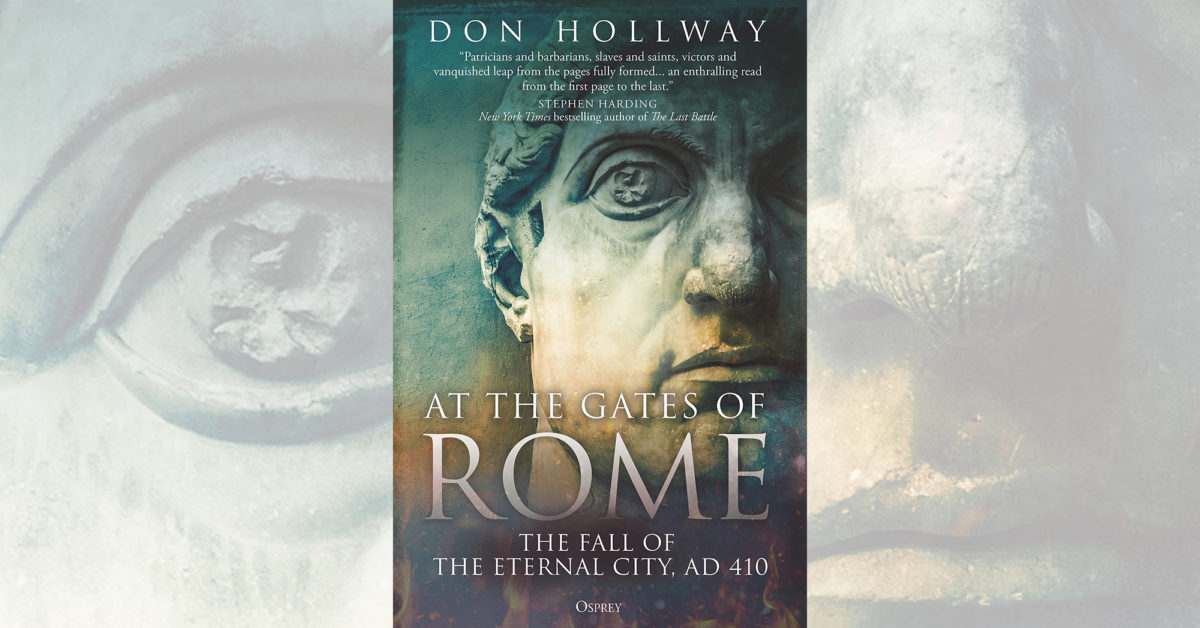At the Gates of Rome: The Fall of the Eternal City, AD 410, by Don Hollway, Osprey Publishing/Bloomsbury Publishing, Oxford, U.K., and New York, 2022, $30
In many ways the history of Rome is the story of “barbarians”—those beyond the imperial frontier who looked on Rome with longing, either to conquer and pillage or join and gain protection. Barbarians were lurking at the fringes when Rome clawed its way to power, and they were in on its last gasping breaths in the West. Imperial conflict with barbarians persisted for more than 800 years and shaped Rome in profound ways.
As Plutarch noted, the key to Rome’s success was the assimilation of those whom it conquered. This Romanizing, voluntary or not, of people absorbed within imperial boundaries paid dividends to Romans and barbarians alike. When the Goths, driven by the Huns, pushed on the boundaries of the empire in the fourth century, Rome struck a deal. In exchange for refuge, the Goths would serve Rome. But the relationship soon soured, and in 378 Eastern Roman Emperor Valens was killed at Adrianople, Thracia (present-day Edirne, Turkey), trying to contain the thankless guests. Unconquered and unassimilated, the Goths remained a barbarian nation within the imperial borders. The consequences for Rome were profound. At the Gates of Rome examines those tumultuous times.
Author Don Hollway focuses on the decades leading up to the 410 sack of Rome by the Visigoths, an event that exposed an empire spiraling into ever-increasing chaos. But history is not just a chronicle of events; it is the study of people in historical context—their ambitions, virtues, vices, fears and flaws. A gifted storyteller, Hollway wraps his narrative around the lives of two men prominent within the maelstrom of intrigue and war that marked those decades: Flavius Stilicho, the supreme military commander of Rome and buttress of its teetering throne, and Alaric, king of the Goths, a onetime ally of Rome turned potent enemy.
Skillfully weaving the accounts of ancient chroniclers into a compelling narrative, Hollway relates how these former comrades in arms became opposition leaders in the contest for empire. The author richly contextualizes their stories within the broader history of Rome, giving readers an appreciation of the considerations that weighed on their decisions. Whether describing battles or political plots, Hollway has a knack for breathing life into history. At the Gates of Rome is a solid work of scholarship as well as a good read.

at the gates of rome
The Fall of the Eternal City, AD 410
By Don Hollway
This post contains affiliate links. If you buy something through our site, we might earn a commission.





